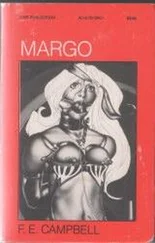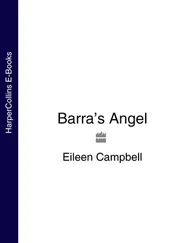Iain Campbell - Winter of Discontent
Здесь есть возможность читать онлайн «Iain Campbell - Winter of Discontent» весь текст электронной книги совершенно бесплатно (целиком полную версию без сокращений). В некоторых случаях можно слушать аудио, скачать через торрент в формате fb2 и присутствует краткое содержание. Жанр: Исторические приключения, на английском языке. Описание произведения, (предисловие) а так же отзывы посетителей доступны на портале библиотеки ЛибКат.
- Название:Winter of Discontent
- Автор:
- Жанр:
- Год:неизвестен
- ISBN:нет данных
- Рейтинг книги:3 / 5. Голосов: 1
-
Избранное:Добавить в избранное
- Отзывы:
-
Ваша оценка:
- 60
- 1
- 2
- 3
- 4
- 5
Winter of Discontent: краткое содержание, описание и аннотация
Предлагаем к чтению аннотацию, описание, краткое содержание или предисловие (зависит от того, что написал сам автор книги «Winter of Discontent»). Если вы не нашли необходимую информацию о книге — напишите в комментариях, мы постараемся отыскать её.
Winter of Discontent — читать онлайн бесплатно полную книгу (весь текст) целиком
Ниже представлен текст книги, разбитый по страницам. Система сохранения места последней прочитанной страницы, позволяет с удобством читать онлайн бесплатно книгу «Winter of Discontent», без необходимости каждый раз заново искать на чём Вы остановились. Поставьте закладку, и сможете в любой момент перейти на страницу, на которой закончили чтение.
Интервал:
Закладка:
On arrival Alan asked Robert, “Did you have a good night’s sleep?”
“Probably not as good as you, but the villagers have taken us into their homes and are providing what food and accommodation they can. Nobody can ask for more than that. They can’t give you what they don’t have!” replied Robert with a shrug. “By the way, this is David, the steward. He was off in Hereford yesterday trying to barter dried fish for flour.”
Alan nodded to the stocky dark-haired man at Robert’s side. “God Hael, David! I have good news. In about an hour two wagons will be arriving. One is from Gloucester, carrying sixty bushels of rye and wheat flour and the other is from Hereford with four bushels of barley for the taverner to use to make ale, and seven hogsheads of brewed ale. I’ll arrange for further supplies from Gloucester; they can come up the river by boat to Monnington. Anne, if you’d like to get the ladies baking when the supplies arrive, we can have something of a celebration.”
“The men went out this morning and took some deer,” said Robert. “I’ll send them back out again and see if we can get some boar and more deer, maybe some wild cattle. There are quite thick patches of forest a little closer to the border. The men will appreciate having ale to drink- drinking water is too damn dangerous!”
While the hunters headed out, Alan conducted Robert, Osmund, Father Siward, Siric, David and the head-cheorls of Norton Canon, Monnington, and Bobury- by name Aella, Bearn and Defan respectively- to the selected site on a slight rise just to the west of the village. “ Hlaford !” he began. “Here we’re going to build a fortified bailey. Or burgh , where the people of your villages can take shelter in time of trouble. All the villagers owe traditional burgh-bot labour for fortifications.”
They paced out an oblong 100 paces by 70, Alan marking the site to show the ditch and rampart, the towers at each corner and each side of the gate on the eastern side; then the position of the Hall, kitchen, stables, armoury and granary- Alan intended that the food supplies for the village also be secured.
“Build the stable first, followed by the Hall. Then the ditch, rampart, palisade and towers. Next, build the armoury and finally the granary, which won’t be needed until late summer. Also dig a well.” Alan showed them the sketch plans he had drawn the night before. “I want you to have all available labour engaged. You have a couple of months until the harvest is due to be sown. These plans aren’t grandiose and the facilities will be fairly basic. Half-timber construction with wooden frames and wattle and daub walls. Slate stone floors. Wooden shingles for roofing- not thatch. You have recently learned how easily thatch burns! Shingles burn, but not so easily or quickly. The workers, men and women, will be given food and drink each day. After that’s done we can repair the Moothall and the mills, and also the fish-farms at Monnington and Bobury.
“Do we need to invite men and women to come and live in these villages to replace those who were killed or taken?” continued Alan. “Yes? Very well, David I want you to have the word spread in Gloucestershire that we are looking for suitable people and that land will be granted to them in laen - but wait until we’ve sufficient food available to feed them!
“Siric, Aella, Bearn and Defan, have your blacksmiths as quickly as they can make new ploughs as replacements for those destroyed, and repair those damaged in the raid. They’ll be needed in a few weeks. When they have spare moments they can make spearheads and arrowheads. Robert, arrange for a supply of steel bars from Gloucester and also two wagons of grain each week. It’s so much cheaper there than in Hereford that it’s worth the cost of transport. I’ll provide the funds and I’ll send swords from Gloucester- that would be the best source as they have ample foundries and a suitable supply of iron, coal and charcoal from the Forest of Dean. David, do you have two or three reliable men we can send by ship to Cardiff to buy Welsh bows? Good.”
“This all promises to be a most expensive exercise,” commented Robert.
“True, but we need to rebuild what was here so we can all prosper in the future, and for them be in a position to defend it so it’s not all destroyed again next year. I expect each village to provide ten bowmen and twenty to thirty fyrdmen. Then you can be in a position to mount an effective defence. I’ve given instructions to Moses the Jew that you’re to be provided with what funds you reasonably require- but you’ll need to provide proper accounts,” replied Alan briskly. “Now, let’s see how matters are progressing in the village.”
In fact matters were progressing well. The supply wagons had arrived and been emptied. The smell of baking bread wafted over the village for the first time in months. The fish-traps at Monnington had been emptied and cleaned fish lay waiting to be baked or fried. The deer and other game caught earlier were cooking over open fires and the hunters were returning with further catches that would shortly be roasting or boiling with vegetables. The inhabitants of Norton Canon, Monnington and Bobury were drifting in to join the villagers of Staunton in partaking of their new lord’s largess. The gathering was convivial and Alan, Anne and Robert circulated and chatted with the villagers, ascertaining needs and receiving thanks for the provender they had supplied.
Two days later Alan, Anne, Synne, Osmund, Brand, Leof and an escort of four men rode east towards Essex and home.
CHAPTER TWO
Thorrington February 1068
The winter in the east was deep and bitter. Snow lay deep and icy blizzards blew from the north. In Tendring Hundred the villages were well built, well-provisioned and reasonably affluent. Farmers stayed inside during the short winter days unless the weather was fair, repairing tools and caring for the animals that were mostly housed indoors, often in the same rooms as the human inhabitants. On those days when it was possible to venture outside, the geburs performed minor repairs to fences or hunted for the small wild animals that Alan had given them leave to take- fish, hare, foxes and pigeon. No doubt also the occasional partridge, pheasant and deer were also quietly taken, although Alan was not concerned as long as this was not too blatant a breach of his rights.
Alan, Anne and their household generally stayed snug near the fire in their newly-built, luxuriously-appointed and centrally-heated New Manor Hall at Thorrington. This was a masterpiece of engineering and planning, constructed of a stone-built lower storey, half-timber upper storey with a wood-shingle roof. The floor and walls were heated by a hypocaust furnace located in an adjoining building with the warm air conducted underground and then up the walls through flues, in a manner used in the past by the Romans. The Hall fire, largely only for appearances given the effective heating of the Hall, had a metal canopy which channeled the smoke away up a metal chimney. Light came though eight glazed windows, four on each side of the Hall. Alan had reached into the past for inspiration and had spared no expense in construction. The Hall even had a bathing house located next to the kitchen, where the water in a large tub made from a tun barrel cut in half and big enough to accommodate several people, was heated by the kitchen fires. Probably the biggest innovation was the self-flushing latrines, where water piped from a nearby spring was used to wash away the waste- a common feature of Roman buildings, although now an unheard of luxury, and one which Alan had copied.
Alan conducted regular sword and spear training drills for his men in the covered salle d’arms next to the armoury. Owain the Welsh archer conducted training for men with the longbow on any day when the weather permitted.
Читать дальшеИнтервал:
Закладка:
Похожие книги на «Winter of Discontent»
Представляем Вашему вниманию похожие книги на «Winter of Discontent» списком для выбора. Мы отобрали схожую по названию и смыслу литературу в надежде предоставить читателям больше вариантов отыскать новые, интересные, ещё непрочитанные произведения.
Обсуждение, отзывы о книге «Winter of Discontent» и просто собственные мнения читателей. Оставьте ваши комментарии, напишите, что Вы думаете о произведении, его смысле или главных героях. Укажите что конкретно понравилось, а что нет, и почему Вы так считаете.












